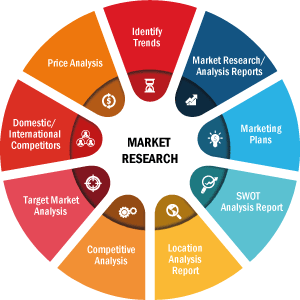Glass Insulation Market: Key Insights
The glass insulation market is expected to boost at a significant rate during the forecasted years. This growth is attributed to the increasing demand for energy-efficient buildings and the stringent government regulations regarding energy conservation. The market is also driven by the increasing awareness about the environmental impact of energy consumption and the need to reduce carbon emissions.
Glass insulation provides excellent thermal and acoustical properties and ease of installation; this makes it a popular choice for residential and commercial buildings. The cost-effectiveness of glass insulation products also makes them accessible to a wide range of customers.
Glass Insulation Market
Glass Insulation Market Size and Forecasts (2021 - 2031), Global and Regional Share, Trends, and Growth Opportunity Analysis Report Coverage:by Type (Glass Wool, Cellular Glass, and Insulating Glass Unit) and End Use (Residential and Non-Residential), and Geography (North America, Europe, Asia Pacific, and South and Central America)
Glass Insulation Market Scope and Share 2031
Download Free Sample
Increasing Environmental Concerns to Drive Glass Insulation Market
The increasing environmental concerns are driving the market growth of glass insulation. The need to reduce carbon emissions and energy consumption is leading to the increased adoption of energy-efficient building materials, such as glass insulation. The use of glass insulation in buildings helps to decrease energy consumption and the associated carbon emissions, thus reducing the environmental impact.
The stringent government regulations regarding energy conservation are also driving the market growth of glass insulation. Governments around the world are implementing regulations to reduce energy consumption and promote the use of energy-efficient building materials. This is leading to the increased adoption of glass insulation in buildings, as it helps to comply with these regulations and reduce energy consumption.
The growing awareness about the environmental impact of energy consumption is also driving the market growth of glass insulation. Consumers are becoming conscious of the impact of their energy consumption on the environment and are searching for ways to decrease their carbon footprint. The use of glass insulation in buildings helps to decrease energy consumption and the associated carbon emissions, making it an attractive option for consumers who want to reduce their environmental impact.
Overall, the increasing environmental concerns and the associated regulations and awareness are driving the market growth of glass insulation, as it is an effective way to decrease energy consumption and carbon emissions in buildings.
Glass Insulation Market: Segmental Overview
The global glass insulation market is segmented based on the type and end-use. Based on type, the global glass insulation market is segmented into glass wool, cellular glass, and insulating glass units. Based on end use, the global glass insulation market is segmented into residential and non-residential.
Based on end use, the residential segment held a substantial share of the global glass insulation market.
The increasing construction of new residential buildings and the renovation of existing buildings is driving the demand for glass insulation. The use of glass insulation in residential buildings helps to improve the energy efficiency of the buildings, reducing energy consumption and associated costs. The government initiatives to promote energy-efficient buildings and the availability of tax credits and rebates for the use of energy-efficient building materials are also driving the market growth in the residential segment. These initiatives are increasing awareness about the benefits of energy-efficient buildings and the associated cost savings, leading to the increased adoption of glass insulation in residential buildings.
The growing trend of smart homes is also helping the market to grow in the residential segment. Smart homes are equipped with sensors and automation systems that can monitor and control energy consumption, making them more energy efficient. The use of glass insulation in smart homes helps to improve energy efficiency and reduce energy consumption, making it an attractive option for consumers.
Glass Insulation Market: Competitive Landscape and Key Developments
Nippon Sheet Glass Co Ltd., Owens Corning, PPG Industries, Inc., Certain Teed Corporation, Pittsburgh Corning Corporation, Saint-Gobain, AFICO, Johns Manville, Knauf, and Scheuten Glas are among the key players operating in the glass insulation market. These companies have a widespread presence worldwide, which provides lucrative opportunities to serve many customers and expand the market.
Contact Us
Phone: +1-646-491-9876
Email Id: sales@theinsightpartners.com